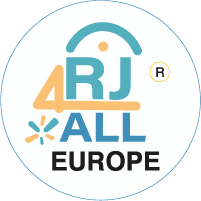RJiNEAR Resilience Model
Positive Psychology and Criminology
Positive Psychology
The origins of positive psychology can be traced back to the work of psychologists such as Abraham Maslow and Carl Rogers. Positive psychology, as defined by Seligman and Csikszentmihalyi (2000), focuses on valued subjective experiences and positive individual traits at both individual and group levels.
- Individual Level: This includes traits such as love, vocation, courage, interpersonal skill, aesthetic sensibility, perseverance, forgiveness, originality, future-mindedness, spirituality, high talent, and wisdom.
- Group Level: This involves civic virtues and institutions that encourage better citizenship, including responsibility, nurturance, altruism, civility, moderation, tolerance, and work ethic.
Positive psychology aims to enhance well-being, contentment, and satisfaction in the past, hope and optimism for the future, and flow and happiness in the present.
Positive Criminology
Positive criminology focuses on integration and social inclusion to reduce negative emotions, desist from crime, and overcome the trauma of victimisation. According to Ronel and Segev (2015), this approach emphasises forces that are experienced positively by individuals and groups, which contribute to crime reduction and personal growth. Drawing from Maslow’s principles, positive criminology shifts the focus from punishment to identifying and maximising human strengths such as creativity, courage, humanity, justice, temperance, and transcendence. The core assumption of positive criminology is that by enhancing the good in individuals who have deviated, we improve their chances of reintegration, well-being, desistance from crime, and the healing of victims.
The RJiNEAR Model
RJ4All has long been at the forefront of integrating positive psychology with restorative justice. In this context, RJ4All has developed the RJiNEAR model, a resilience and well-being psycho-social model derived from the principles and teachings of restorative justice, positive criminology, and positive psychology, as well as psychotherapy and developmental coaching. RJiNEAR offers a theoretically driven method of working with psychological variables such as perception, reasoning, emotions, social influences, and responses, all of which facilitate positive identities and personal growth. The model argues that by nurturing these variables, individuals’ resilience to adopting extremist beliefs and values can be implicitly strengthened.

